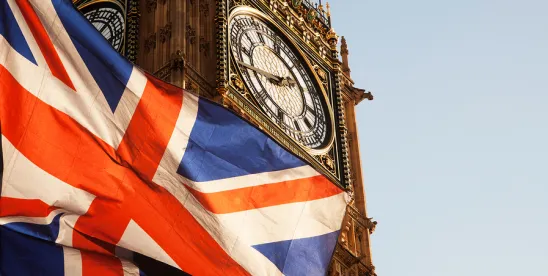In addition to the recent temporary enforcement suspensions (see April 16 Alert and April 21 Alert) in response to the ongoing disruption caused by the Coronavirus Disease 2019 (COVID-19) pandemic, the UK’s Environment Agency (EA) has published further temporary regulatory position statements (RPS).
Like the EA’s general pre-COVID-19 RPS, the new COVID-19-specific RPS are declarations by the EA (the primary environmental regulator and enforcement authority for England and Wales) that it will not seek to enforce certain aspects of the UK’s environmental permitting regime in specific circumstances related to COVID-19.
An RPS does not render previously unlawful activity lawful; rather, it renders it less likely that enforcement action will be taken in relation to that activity (and, were enforcement action to be taken, an RPS may be sought to be used as a defence).
Each of the new RPS sets out conditions upon which businesses seeking to rely must comply with, and, as the EA’s guidance notes, the existence of an RPS does not exempt a relevant business from complying with any other applicable environmental regulatory requirements.
In particular, businesses seeking to rely on a COVID-19 RPS must comply with:
-
the specific conditions set out in the RPS (including any requirements to retain documents or to notify the EU or get its approval to rely on the RPS); and
-
requirements concerning pollution and harm to human health.
Waste management (excluding radioactive waste)
COVID-19 RPS C8 applies to social distancing when signing and handing over waste transfer and consignment notes in person. RPS C8 will be withdrawn on 30 June 2020 (after which, as with other RPS which are subject to an expiry date and unless the expiry date is extended by the EA, it can no longer be relied upon by businesses as a defence to enforcement action).
COVID-19 RPS C9 applies to packaging waste and registering as a packaging producer. RPS C9 will be withdrawn on 8 July 2020 unless extended by the EA.
COVID-19 RPS C14 applies to delaying hazardous waste consignee returns. RPS C14 will be withdrawn on 31 July 2020 unless extended by the EA.
COVID-19 RPS C16 applies to the temporary storage of incinerator bottom ash aggregate. RPS C16 will be withdrawn on 30 September 2020 unless extended by the EA. Businesses must get written agreement from the EA before using RPS C16.
Monitoring and reporting
COVID-19 RPS C10 applies to mandatory reporting for installations, radioactive substances and waste permits. RPS C10 will be withdrawn on 30 June 2020 unless extended by the EA. Businesses must notify the EA before using RPS C10.
Regulated industry installations (non-waste)
COVID-19 RPS C11 applies to emissions to air from large combustion plant during black start events (i.e., the restoration of electricity supply after a significant electrical emergency, as instructed by the UK’s National Grid). RPS C11 will be withdrawn on 31 July 2020 unless extended by the EA. Businesses must notify the EA before using RPS C11.
Agriculture
COVID-19 RPS C12 applies to spreading slurry or milk on land, or storing slurry. RPS C12 will be withdrawn on 30 September 2020 unless extended the EA. Businesses must get written agreement from the EA before using RPS C12.
Radioactive substances regulation
COVID-19 RPS C13 applies to the accumulation of radioactive waste that cannot be transferred because of COVID-19. RPS C13 will be withdrawn on 30 September 2020 unless extended by the EA. Businesses must notify the EA before using RPS C13.
COVID-19 RPS C15 applies to exceeding permit limits for medical use of radioactive substances. RPS C15 will be withdrawn on 30 September 2020 unless extended by the EA. Businesses must notify the EA before using RPS C15.
Points to note
As noted above, businesses seeking to rely on a COVID-19 RPS should ensure that they comply with its terms (including any document retention and notification requirements) and, in addition, that their activities do not, and are not likely to, cause pollution or harm to human health. The precise requirements are set out in the webpages linked to above.
Further, even if the COVID-19 RPS effectively provides an exemption from the requirements of a particular legislative requirement, other activities governed by that legislation will not be covered by the RPS (although it may be that one of the EA’s general pre-COVID-19 RPS could be relevant).
Activities subject to permitting requirements often involve a number of discrete steps, each of which is subject to a different permitting requirement – an RPS, however, will only apply to the specific step to which it expressly relates (and not, for example, to precursor or ancillary activities).
Businesses should monitor the EA’s COVID-19 RPS website for any updates to the EA’s enforcement position, including the publication of further RPS which may be relevant to their operations.
Finally, businesses should monitor the EA’s general website for updates to the EA’s wider operational activities.



 />i
/>i

